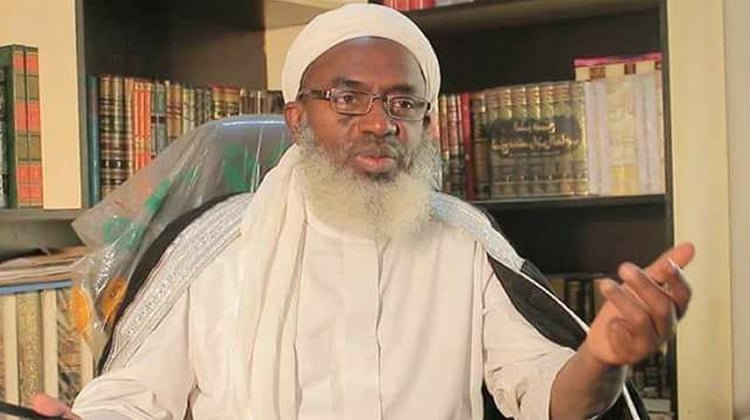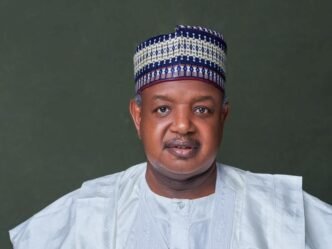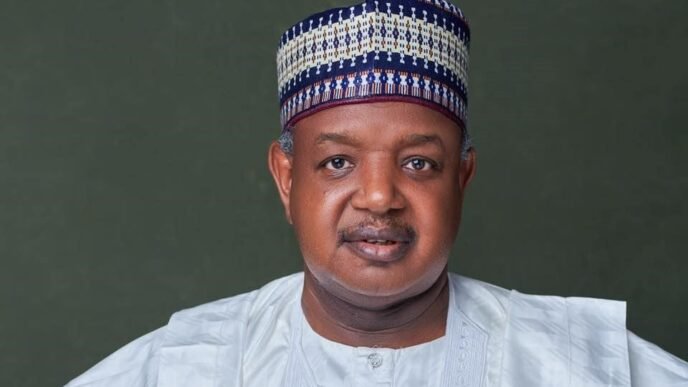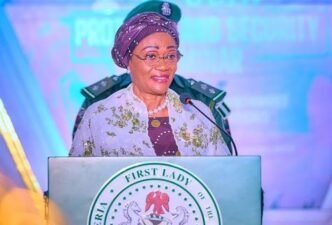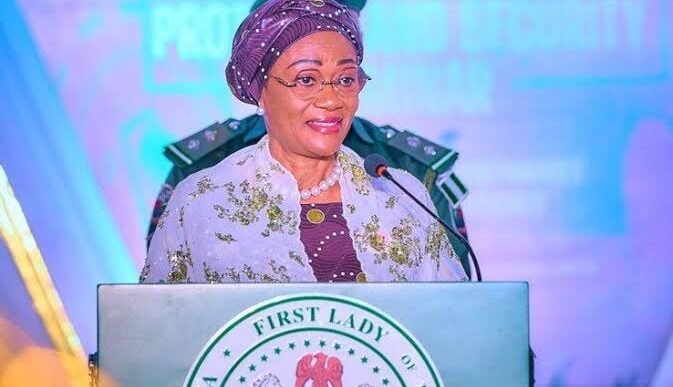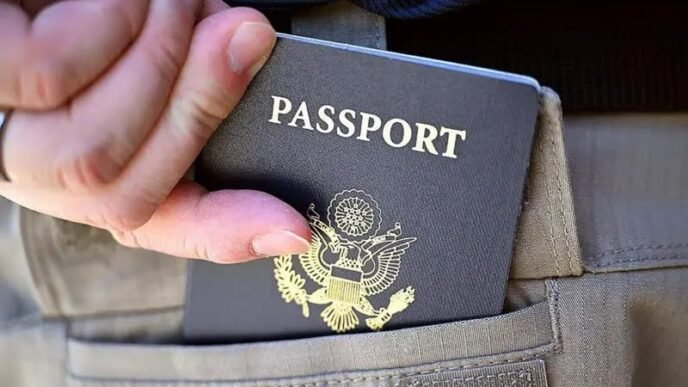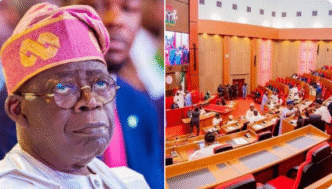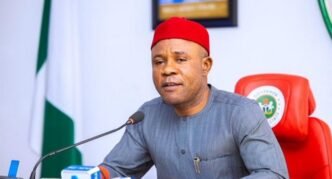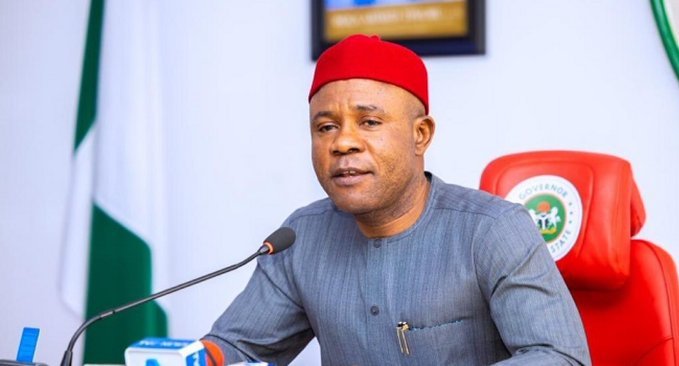In a renewed appeal to the Federal Government, prominent Islamic cleric, Sheikh Ahmad Gumi, has once again urged Nigerian authorities to engage bandits in dialogue, insisting that negotiation remains the most viable path to ending insecurity in the country.
Gumi made this call on Monday through a post shared on his verified Facebook page, where he referenced the recently brokered peace agreement between Israel and Hamas as an example of how even the most entrenched conflicts can be resolved through dialogue rather than force.
According to him, the peace deal between the two Middle Eastern rivals shows that “no matter how deep the wounds of war or terrorism may run, genuine dialogue remains the most powerful tool for peace.”
Drawing Lessons from Global Diplomacy
The cleric cited the Israel-Hamas truce as a global example of what constructive engagement can achieve. The historic deal, mediated under the oversight of United States President Donald Trump, has been hailed as a major diplomatic breakthrough in a decades-long conflict that has cost thousands of lives.
Under the terms of the agreement, Israel reportedly committed to a phased military withdrawal from parts of Gaza, while Hamas agreed to release Israeli hostages in exchange for the freedom of several Palestinian prisoners held in Israeli jails.
Gumi argued that if two bitter enemies like Israel and Hamas could come to the negotiating table after years of hostility, Nigeria could equally resolve its worsening insecurity through dialogue.
“If nations at war for decades can sit together and find a way to peace, what excuse do we have?” Gumi asked. “Dialogue is not a sign of weakness; it is a sign of wisdom and courage.”
A History of Advocacy for Peace Talks
Sheikh Ahmad Gumi, a former army officer and one of Northern Nigeria’s most influential clerics, has been an outspoken advocate for peaceful engagement with armed groups.
Over the years, he has repeatedly urged the government to abandon what he describes as an “overreliance on military force” and instead pursue peace through negotiation, rehabilitation, and reintegration.
In his latest message, Gumi maintained that the government’s continued emphasis on military operations has failed to deliver sustainable peace.
“For years, we have seen military offensives, air raids, and arrests, but what has changed?” he asked rhetorically. “Communities are still under siege, lives are being lost, and trust is eroding. We must talk to those who hold the guns if we truly want peace.”
Banditry and the Search for Lasting Solutions
Nigeria’s northwest and north-central regions have been ravaged by banditry, a loosely coordinated network of armed groups responsible for kidnappings, cattle rustling, and attacks on rural communities.
According to reports from security agencies and humanitarian organizations, thousands of people have been killed, while millions have been displaced from their homes. In addition, mass abductions — including the kidnapping of students from schools — have become a recurring tragedy.
Despite numerous military operations, including Operation Hadarin Daji and Operation Whirl Punch, attacks have persisted. Security experts say the vast forests across Zamfara, Katsina, Niger, and Kaduna States have become safe havens for armed groups.
Gumi believes that addressing the root causes — such as poverty, marginalization, and the absence of government presence — is key to ending the crisis.
“These bandits are not foreign invaders; they are Nigerians. Many took up arms because of poverty, injustice, and neglect,” he said. “If we address the root causes through dialogue and empowerment, we can turn them from enemies into partners for peace.”
Criticism and Controversy
Gumi’s stance has not been without controversy. Many Nigerians, including political leaders and security analysts, have criticized his repeated calls for negotiation with bandits.
Some argue that engaging with criminal groups legitimizes their activities and undermines the rule of law. Others worry that dialogue could embolden other violent actors seeking similar concessions.
However, the cleric insists that his approach is grounded in realism and compassion. He maintains that peace cannot be achieved through violence alone and that military force, while necessary in some cases, must be complemented by reconciliation and social justice.
“We cannot bomb our way to peace,” Gumi stated. “The gun can silence a man but cannot silence an idea. The only way to silence violence is through understanding, dialogue, and forgiveness.”
Reactions from Security Experts and Citizens
Security analysts are divided on Gumi’s position.
Dr. Kabiru Adamu, a security and conflict-resolution expert, noted that dialogue has worked in some global contexts but warned that Nigeria’s situation requires a “balanced approach.”
“In theory, dialogue is essential for peace,” Adamu said. “But it must be structured, transparent, and backed by justice for victims. Without accountability, we risk encouraging impunity.”
Meanwhile, several citizens took to social media to share mixed reactions to Gumi’s latest remarks. Some praised his courage and consistency, while others accused him of sympathizing with criminal elements.
A Kaduna-based resident, Musa Aliyu, wrote: “Gumi may sound controversial, but he has a point. If the military solution has failed for years, why not try dialogue?”
Another user countered: “You don’t negotiate with terrorists. We need justice, not appeasement.”
Calls for a National Peace Framework
Gumi’s renewed call comes as Nigeria continues to grapple with multiple security challenges — from Boko Haram insurgency in the Northeast to separatist agitations in the Southeast and communal clashes in the Middle Belt.
He proposed that the Federal Government establish a National Dialogue and Peace Commission to coordinate peace talks, mediate disputes, and design long-term rehabilitation programs for ex-fighters.
According to him, such an initiative would not only address banditry but also serve as a model for resolving other conflicts in the country.
“Every war eventually ends at the table,” Gumi emphasized. “The earlier we talk, the sooner we heal.”
A Broader Global Perspective
Analysts say Gumi’s reference to the Israel-Hamas peace deal underscores a broader truth about global conflict resolution — that even the most bitter disputes can end through negotiation.
The Middle East truce, while fragile, has been hailed by international observers as a potential foundation for a more lasting peace in the region. It marks the first major diplomatic progress between Israel and Hamas in years, with world leaders urging both sides to uphold the agreement.
By invoking that example, Gumi appears to be sending a message not just to Nigerian authorities but also to the public: that peace, no matter how distant it seems, is achievable through persistence and dialogue.
Conclusion
As Nigeria continues its struggle against armed violence and insecurity, Sheikh Ahmad Gumi’s call for dialogue reopens a national debate on the best path to peace.
While opinions remain divided, his message — inspired by international diplomacy — raises a critical question for policymakers: Can Nigeria afford to keep fighting without talking?
Whether his appeal sparks a shift in government policy remains to be seen, but one thing is clear: Gumi’s voice continues to challenge the nation to rethink how it approaches one of its most urgent crises — the quest for peace.


